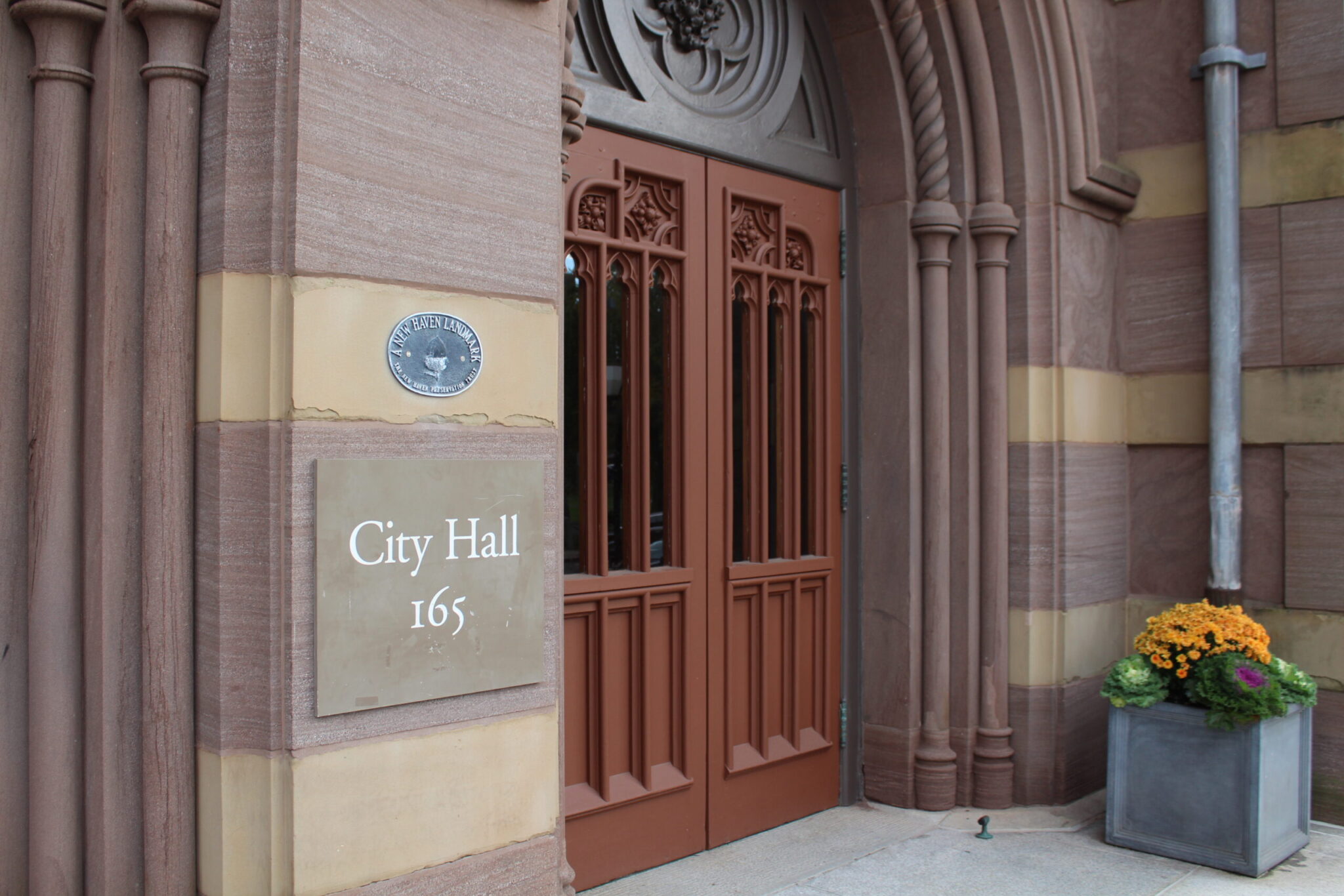New Haveners weigh in on proposed budget
During the first two public hearings on the mayor’s proposed budget, city residents discussed housing, education, parks and red light cameras.

Gabrielle Lord, Contributing Photographer
New Haveners who testified during the first two public budget hearings largely voiced strong support for elements of the proposed budget.
After New Haven Mayor Justin Elicker submitted his budget proposal on March 1, the Board of Alders’ Finance Committee held two public hearings and listened to testimony from more than 40 residents. Those who testified mainly spoke in favor of the Livable City Initiative staff increases, expanded Board of Education budget, creation and investments in the Parks Department and the proposed red light and speed cameras program.
“It’s heartbreaking when I think back on the effect that housing insecurity had on my own childhood and the lasting effects that it has had throughout my life,” Jaime Myers-McPhail, a member of the Affordable Housing Commission, said. “I want to encourage the Board of Alders to address our affordable housing crisis in this budget cycle so working people can continue to call New Haven home and not be taken advantage of by mega-landlords or by corporations that don’t pay their share.”
A dozen residents, including New Haven tenant union representatives and tenants, New Haven Rising organizers and a former News staff reporter — Thomas Birmingham ’23 — who reported on LCI’s inability to address residents’ concerns testified in favor of the added housing positions.
Many renters talked about unsafe conditions, like mold and collapsing ceilings, they experienced in rented properties. They also shared their experiences dealing with LCI, complaining about the long wait times and the inability of LCI to enforce safety standards and hold landlords accountable.
Gary Doyens, who said he was a property manager, asked alders to reject all new positions across all departments, arguing that the city could not afford it and that the running programs, including LCI, were ineffective.
The second most discussed issue during the hearings was the budget for New Haven parks. All those who testified were in favor of increasing funding and staffing for parks and sports fields in the city.
10 residents, mostly park volunteers and employees, came to the two hearings to describe what they called a “decay” of park infrastructure over the previous decades. Many cited decreased staffing and equipment issues as obstacles to preserving city parks.
“We need to invest more in our parks so that they can be well maintained, and we can all be proud of that,” Stephanie FitzGerald, who volunteers to clean and maintain New Haven parks, said. “This year’s budget increased the number of park workers, but we still have a long way to go … I implore you to fund parks as generously as you can.”
David Belowsky, the chair of the Parks Commission who has served as a commissioner since 1993, said at the hearing that the merging of the Parks and Public Works departments in 2020 did not work. Because of this, he said he supported separating the two departments, as proposed in the mayor’s budget.
Six NHPS teachers, including New Haven Federation of Teachers president Leslie Blatteau, and two high school students, one of them being Board of Education student representative Harmony Solomon Cruz-Bustamante, testified in support of the proposed education budget.
The teachers talked about staffing shortages and the lack of equipment, which they said impedes their work. Melody Gallagher, a visual arts teacher and executive board member at NHFT, said that the school she teaches at has leaks during rainstorms and added that she has to buy art supplies for her students with her own money.
Other teachers who testified spoke about needing more support from the city.
“Equal opportunity in Connecticut is low. It’s unacceptable,” Blatteau said. “In partnership with our new superintendent, Dr. Negrón, New Haven is making significant progress [in education] as we prioritize our students’ needs. Given the increased and complex needs of our students, New Haven Public Schools need increased resources to do this work.”
The proposed budget includes an additional $5 million for the BoE, compared to last year, a large part of which will go towards increased teacher salaries, per the city’s contract with the teachers union.
In her testimony, Blatteau said that the city needs to ensure students’ reading competency, protect their mental health and make schools safe. She claimed that the mayor’s proposed increase does not go far enough to achieve these goals.
Five residents testified about the red lights and cameras program, which has to be approved separately by alders but is also included in the mayor’s budget. If approved, the program will install these cameras in 19 locations, as suggested by the Elicker administration. New Haven would be the first municipality in Connecticut to install red light cameras, which were legalized by the state last year.
In the budget, Elicker added four positions to manage the project.
“If you go around New Haven and ask anyone what they think of our streets, they will say [that] they are dangerous,” Robert Rock, who worked on the mayor’s group on red light and speed cameras, said, talking in favor of the project. “Lots of people die in our city because our streets are dangerous.”
Just one New Havener spoke out against the program, citing concerns about normalizing video surveillance and suggesting that the city should deal with traffic through different planning approaches.
The Board of Alders will hold one more public hearing on the budget on April 18.
Correction, April 1: An earlier version of this article misattributed Myers-McPhail’s quote to Jessica Stamp.







